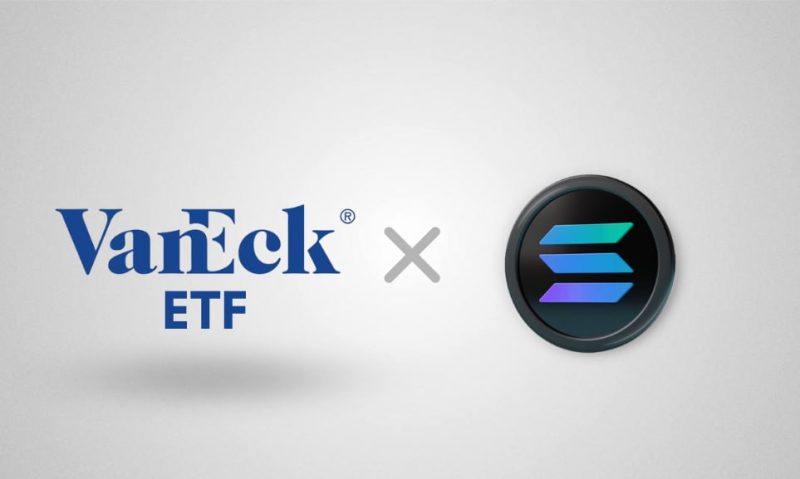Fee-Free Launch Aims To Capture Early Attention
VanEck has rolled out its first U.S.-listed Solana ETF, called VSOL, giving investors spot exposure to SOL along with built-in staking rewards. Trading opened on November 17, 2025, on the Cboe BZX Exchange. The firm wants to spark early momentum, so it waived its sponsor fee for the first US$1 billion in assets or until February 17, 2026. The staking provider also removed its fees during this promotional window. Afterward, the ETF will carry a 0.30 percent sponsor fee.
This strategy could help VSOL attract investors who want cost-efficient access to Solana without handling wallets or private keys.
How VSOL Integrates Staking Rewards
VanEck designed VSOL to track Solana’s price while generating yield through staking. The fund delegates a portion of its SOL to validators through SOL Strategies, which operates the Orangefin validator. Instead of sending rewards out as separate income, the ETF adds staking returns directly to its net asset value. VanEck says the current gross staking yield sits near 6.65 percent.
This structure lets traditional investors benefit from staking without managing a validator setup or navigating Solana’s on-chain tools.
Infrastructure, Custody, and Market Positioning
VanEck partnered with several major service providers to support the fund. Gemini Trust Company serves as the main custodian, and Coinbase Custody Trust offers additional coverage. State Street Bank manages administration and cash custody. VanEck also seeded VSOL with US$10 million to start trading smoothly.
VSOL enters a small but growing category of Solana ETFs in the United States. Even though it launched after competing issuers, its zero-fee approach may help it gather assets quickly. Clearer rules around proof-of-stake assets have opened the door for more regulated investment options tied to networks like Solana.
Risks and Outlook for Investors
VSOL still carries meaningful risks. VanEck highlights the volatility of SOL and warns that investors could lose principal. Staking also introduces its own challenges, including slashing, validator downtime, and delays when unstaking. VSOL is not registered under the Investment Company Act of 1940, so it lacks the protections that mutual funds receive.
Even with those factors, VSOL could appeal to investors who prefer brokerage-based exposure rather than direct token ownership. Analysts expect fee waivers to bring strong early inflows, possibly drawing interest away from Bitcoin and Ethereum products. Some institutional investors may view VSOL as a way to support Solana’s network security while seeking long-term growth.
If VSOL gains traction, other issuers may follow with similar staking-enabled ETFs or competitive fee structures. This trend could speed up the arrival of more proof-of-stake-focused investment vehicles and help shape how staking strategies fit into the broader ETF market.
